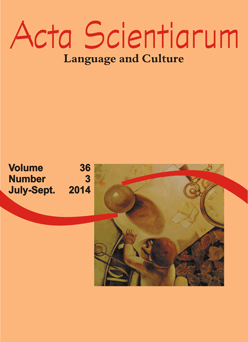<b>Historical and identity implications in Thanksgiving Day for native american people in a book byShermanAlexie
Abstract
An event frequently goes beyond its own place and time in history and becomes a symbol of formation for national identity, even though there are always gaps, untold facts, or simply one of several versions of the history is told. Current paper clarifies some of the historical aspects that surrounded the establishing of Thanksgiving Day as an official holiday in the United States, and how this issue is dealt with in Native American Literature, especially in Sherman Alexie’s book The Absolutely true diary of a part time Indian. A postcolonial theoretical approach is used, emphasizing the concepts of transculturation, nation, resistance and subjectivity, based on the scholarly works by Bhabha (1998), Ashcroft et al. (2007) and Pratt (1992), coupled to Native American literary criticism by Vizenor (1998). Analyses show that, by using several strategies such as humor and criticism, Alexie questions not only the historical situation of the Native American in the United States, but also reveals the effects that those facts, which helped to produce US national thought, have on contemporary Native Americans.
Downloads
DECLARATION OF ORIGINALITY AND COPYRIGHTS
I Declare that current article is original and has not been submitted for publication, in part or in whole, to any other national or international journal.
The copyrights belong exclusively to the authors. Published content is licensed under Creative Commons Attribution 4.0 (CC BY 4.0) guidelines, which allows sharing (copy and distribution of the material in any medium or format) and adaptation (remix, transform, and build upon the material) for any purpose, even commercially, under the terms of attribution.
Read this link for further information on how to use CC BY 4.0 properly.




















6.png)









